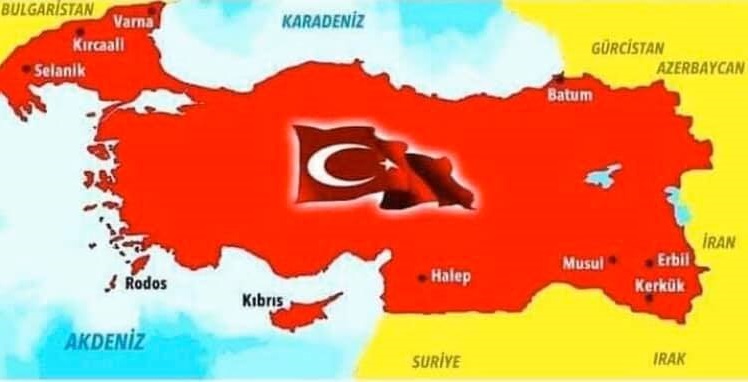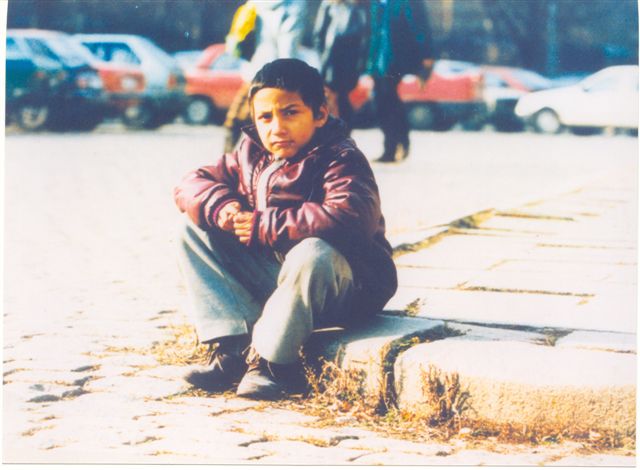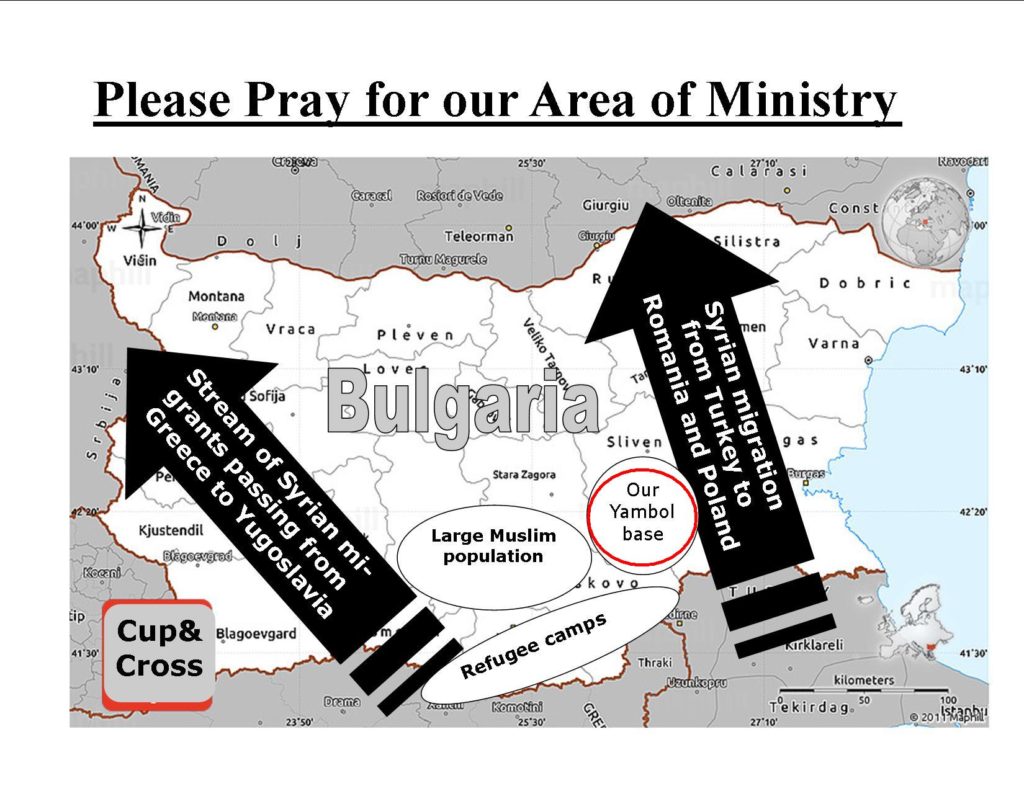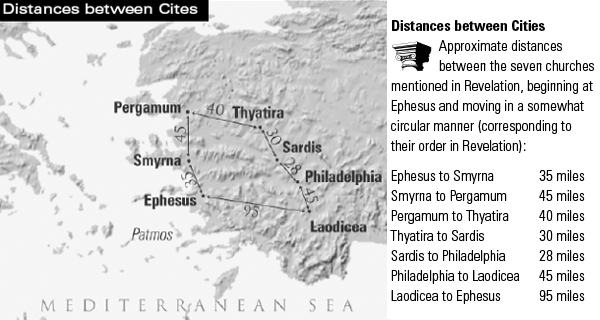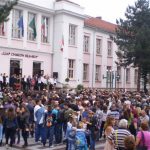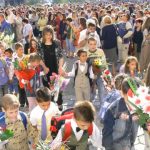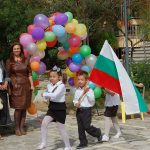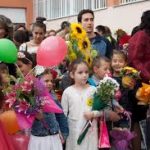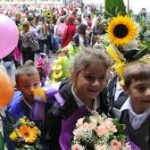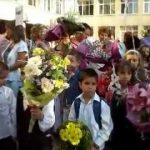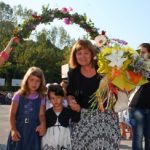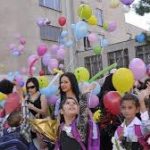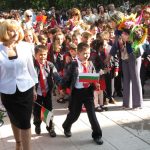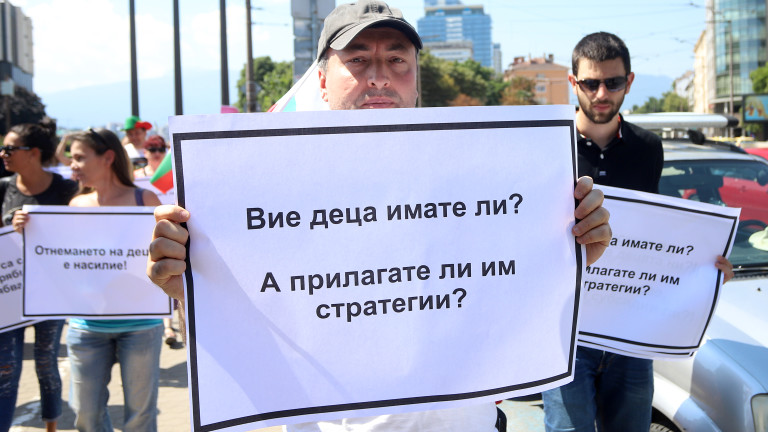2019 Bulgarian Elections Continue the Same Political Trajectory for 2020
2019 Bulgarian Elections Continue the Same Political Trajectory for 2020
- Over 1.9 Million People Voted with Ballot, Nearly 160 Thousand – with a Machine
- Newly Elected MEPs to Joint Action on the Mobility I Package
- Names of All 17 New Bulgaria’s MEPs Became Clear Late Last Night
Our preliminary impressions of the political and economical situation in Bulgaria were based on the recent acceptance of the country into NATO and its anticipated admission into the European Union in 2007.Immediately before our arrival, the elections were won by the Socialist party which brought extra tension to the country, although less than 50% of the population participated through their votes.
The Bulgarian Christian Coalition, representing Evangelicals, won only 21,000 votes while struggling to remain politically active. Nationalistic urges among political circles were also common.
Violent public executions among underground cartels have become a normal event in Bulgaria’s everyday reality. The economy has also been dramatically affected as over 90% of the population lives on the verge of poverty. The price of gas grew in the fall and led to the increase of the cost of food, electricity and travel. Various evangelical churches, some of which are pastored and attended by friends of ours, were targeted by the media. Articles against them infiltrated many evangelistic activities among Romani and other minority communities.
These media attacks remind of similar anti-protestant campaigns during 1990-93. Hopefully, this time, the evangelical churches may be prepared to respond adequately.
As we have previously proposed, this puts Bulgaria back on the “Red Light of 30 Years of Communism…” as in 2013, 2014, 2015, 2016, 2017, 2018, 2019 and 2020…
Government Elections in Bulgaria (2005-2019):
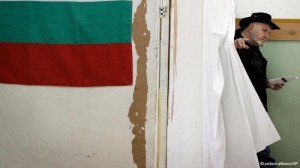 2005 Parliamentary Elections
2005 Parliamentary Elections
2006 Presidential Elections
2007 Municipal Elections
2009 Parliamentary Elections
2009 European Parliament elections
2011 Presidential Elections
2011 Local Elections
2013 Early parliamentary elections
2014 Early Parliamentary Elections
2015 Municipal Elections
2016 Presidential election
2017 Parliamentary elections
2019 European Parliament election (23-26 May)
2019 Bulgarian local elections
2019 Municipal Elections
30 Years after Communism…
The Fall of the Berlin Wall was on the evening of November 9, 1989
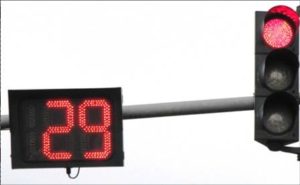
30 years in 60 seconds at the red-light…
I’m driving slowly in the dark and raining streets of my home town passing through clouds of car smoke. The gypsy ghetto in the outskirts of town is covered with the fog of fires made out of old tires burning in the yards. And the loud music adds that grotesque and gothic nuance to the whole picture with poorly clothed children dancing around the burnings.
The first red light stops me at the entrance to the “more civilized” part of the city. The bright counter right next to it slowly moves through the long 60 seconds while tiredly walking people pass through the intersection to go home and escape the cold rain. The street ahead of me is already covered with dirt and thickening layer of sleet.
This is how I remember Bulgaria of my youth and it seems like nothing has changed in the past 30 years.
The newly elected government just announced its coalition cabinet – next to a dozen like it that had failed in the past two decades. The gas price is holding firmly at $6/gal. and the price of electricity just increased by 10%, while the harsh winter is already knocking at the doors of poor Bulgarian households. A major bank is in collapse threatening to take down the national banking system and create a new crisis much like in Greece. These are the same factors that caused Bulgaria’s major inflation in 1993 and then hyperinflation in 1996-97.
What’s next? Another winter and again a hard one!
Ex-secret police agents are in all three of the coalition parties forming the current government. The ultra nationalistic party called “ATTACK” and the Muslim ethnic minorities party DPS are out for now, but awaiting their move as opposition in the future parliament. At the same time, the new-old prime minister (now in his second term) is already calling for yet another early parliamentarian election in the summer. This is only months after the previous elections in October, 2014 and two years after the ones before them on May 2013.
Every Bulgarian government in the past 30 years has focused on two rather mechanical goals: cardinal socio-economical reforms and battle against communism. The latter is simply unachievable without deep reformative change within the Bulgarian post-communist mentality. The purpose of any reform should be to do exactly that. Instead, what is always changing is the outwardness of the country. The change is only mechanical, but never organic within the country’s heart.
Bulgaria’s mechanical reforms in the past quarter of a century have proven to be only conditional, but never improving the conditions of living. The wellbeing of the individual and the pursuit of happiness, thou much spoken about, are never reached for they never start with the desire to change within the person. For this reason, millions of Bulgarians and their children today work abroad, pursuing another life for another generation.
The stop light in front of me turns green bidding the question where to go next. Every Bulgarian today must make a choice! Or we’ll be still here at the red light in another 30 years from now…
The Legacy of Dr. Nicholas Nikolov and the Bulgarian Pentecostal Union
Dr. Nicholas Nikolov passed to Glory on November 6, 1964. After his death, his wife Martha visited Bulgaria twice in 1976 and 1978, the second time for the 50th anniversary of the Pentecostal Union there where their legacy is strongly remembered to this day.
 The organizational talent of Nicholas Nikolov applied with the Pentecostal movement in Bulgaria shaped the history and set a course for the next century. A study on his role and leadership cannot be completed without pointing to the key factors of his ministerial and organizational success despite the divisions present in the Union.
The organizational talent of Nicholas Nikolov applied with the Pentecostal movement in Bulgaria shaped the history and set a course for the next century. A study on his role and leadership cannot be completed without pointing to the key factors of his ministerial and organizational success despite the divisions present in the Union.
After reviewing Nikolov’s work in Bulgaria, it is becoming clear that it was not the cause for a split among Bulgarian Pentecostals in 1928 as often held. The official registration of the new organization simply confirmed a deepening division that had began with the very start of the movement. More important for us today are the factors that helped Nikolov establish, grow and ensure the future of the Pentecostal organization, while many older and more experienced Bulgarian leaders failed and lost their rightful place in history.
Firstly, what other nucleases within early Bulgarian Pentecostalism lacked in comparison with Nikolov’s Union, was the strong support from abroad (educational, financial and otherwise). It proved indispensable in the Bulgarian context of ministry shaped by deep economic crises and spiritual hunger after WWI. Nikolov found way to implement this advantage effectively in areas where the few before him did not succeed.
Based on his strong relationship with Assemblies of God headquarters in Springfield came the clear articulation of doctrinal understanding expressed in a written statement of faith and praxis. In all fairness, neither faith nor praxis borrowed from the American Assemblies of God fit perfectly the primitive Pentecostalism of Bulgaria in 1928. But as the Union grew into a nationwide organization, more useful applications of organized life were replicated even after Nikolov had left Bulgaria for good.
Then comes the very strong and effective educational and discipleship vision for denominational growth (also borrowed from the American Assemblies of God). Other Pentecostal groups in Bulgaria were too formed around strong leaders, but as most of them remained in leadership for life their spiritual strength and vision naturally weekend. While the work of the Spirit and the practice of gifts were central among them, any formal education or even basic training in practical ministry and organizational leadership were disregarded as worldly having no place in the Church of God. With this mentality prevalent, many Pentecostal groups did not survive after the passing of their first generation of leaders and disappeared from history – either assimilated by the Pentecostal Union or lost forever.
In contrast, Nikolov gave special use of strategic organizational structure that aided the work of the Spirit and empowered the Pentecostal churches. He also found ways to invest in the development of trained leaders able to build and lead the Union until his initial vision was fulfilled. In the process, some congregations did loose spirituality while gaining more structure and training. But overall, a healthy balance was reached ensuring a growing and spiritual Pentecostal denomination.
Lastly, the decision to comply with government legislation opened doors to cooperate with other Protestants organizations on a national level. This decision brought constant tensions that had to be carefully weighed. Siding with churches of the Bulgarian Evangelical Alliance, many of which subscribed to liberal theology, was seen by the older believers as compromising of the Pentecostal faith. Yet, it gave the young Pentecostal movement much needed credibility.
In a similar matter the government registration, provided a nationwide representation of Pentecostals in religious life and opened doors for renting auditoriums, building sanctuaries and creating a national network of self-sustained churches. Some older Pentecostals still saw this as compromising with the world and an unforgivable sin. Especially when the Communist Regime took over Bulgaria in 1944, most leading Protestant pastors were sentenced to life in prison and their place in the pulpit was filled by government paid agents, who infiltrated the decision making body of the Union and enforced government mandate over the churches.
But it also helped the Union churches survive the Regime and be among the few allowed to have regular meetings and services making them the largest evangelical group in Bulgaria today. Nikolov was right with his decision that a small band of organized Pentecostals was much stronger than any other divided majority. And that empowering Spirit-filled communities with organizational structure and leadership mandate can earn their rightful place in history.
Turkish “defence” minister posts map of Turkey that includes pieces of Syria, Iraq, Bulgaria, Greece, and all of Cyprus
Turkish Minister of defense Hulusi Akar posted on his own page a map and a message in Turkish and Arabic, basically saying that Turkey is not looking to take over other peoples’ lands, but will take what is their right.
“We have no eyes on anyone’s land. We’re just gonna get back what’s ours,” reads the message which is accompanied by a map which includes within Turkey half of Syria, northern Greece and the Greek islands of the Aegean, and all of Cyprus. It also includes all of northern Iraq including Sulaymaniyah, Erbil, and Kirkuk
What exactly is the Turkish minister saying and what do his friend in Moscow and Washington think of this?
Bulgarian PM Moments on State Abducting Children
Bulgarian PM Borissov, Ministers Say Rumors about State Abducting Children Are Monstrous Lie
Sofia (BTA) – Prime Minister Boyko Borissov said the rumours that the State is to abduct children are a monstrous lie and appealed to the media to help clarify the issue. He was speaking at the beginning of Wednesday’s regular meeting of the Council of Ministers.
“I don’t know whose conscience it can give birth to and how can you talk this way. How to speak and protest against a strategy for a child which does not exist? This was declared by Prime Minister Boyko Borisov at a regular government meeting in the Council of Ministers about the hysteria of parents in Sliven, Yambol and Karnobat that social services are taking away their children from school. How can you replicate a lie that Norway has given money to export our children?, the PM was confused and asked the media for help on the news.
“I cannot assume that there is a person to relate to such a lie”emphasized the Prime Minister. He called such “political pastors,” while other government officials declared them protestant evangelicals. The United Evangelical Church Alliance of Bulgaria issued a statement on Thursday denouncing any association with the matter and refuting any allegations toward evangelical pastors – most of which serve as the only educators in the Roma Gypsy ghettos across Bulgaria where government help is rarely available for childen.
Please Pray for our Area of Ministry in Bulgaria
10 Years of Chaplaincy on the High Seas
 We began our literal journey of ministry on the high seas in 2009. After exploring the opportunity for several years’ prior and submitting applications to various chaplaincy organizations which dealt with such ministry, the doors finally opened for Cup and Cross.
We began our literal journey of ministry on the high seas in 2009. After exploring the opportunity for several years’ prior and submitting applications to various chaplaincy organizations which dealt with such ministry, the doors finally opened for Cup and Cross.
This search for a ministerial identity and its proper application in the real world coincided with the start of the Master’s in Chaplaincy Ministry Program which we designed for the Bulgarian Evangelical Theological Institute in Sofia around 2008-2009. The long standing relationships with professors, active military chaplains from various fields and countries, and the wisdom of several Generals in the field helped us calibrate our ministry focus with what is needed by real people in the real world.
The new fad “to be real” is not enough in a realistic ministry setting. When 25ft. high storm waves beat the aft and the ship is thrown towards the dark wall of ocean waters ahead, one cannot help but “to be real” and depend on a very real and skilled crew. A captain alone cannot run the boat through a storm even if all systems are reported working. It is the crew deep down in the engine room and making its way on the slippery deck that makes it all happen.
The Crew. Some of them have not seen their families for months or even a year at times. They struggle with the same fears and anxieties as the rest of us. Except, while the rest of us can hold on to something for dear life, the crew is obligated by duty to continue to serve and move the boat ahead. The little chapel on the top deck becomes a passage to a lagoon past the riffs of stormy life where stories are shared, prayers are lifted up together and human lives are reclaimed anew for Heaven.
We have found these nontraditional paths of travel and ministry yielding the most unique encounters and connections for Kingdom growth. Our family is thankful for these 10 years and looking forward to even more means of ministry outside of the four church walls. If you would like for us to come to your church as share our journey feel free to reach out to us.
Ministry by Walking Around and the Network of Seven Churches of Revelation
Ministry by Walking Around and the Network of Seven Churches of Revelation
Although the Book of Revelation has been vastly studied and interpreted throughout church history, usually the focus is on one major issue within the text, namely, the role and future of the church. The main reason for this has been the in-depth prophetic and pastoral messages to the Seven Churches.
The value of the messages to the Seven Churches of Revelation is constituted by the fact that they are the last recorded Biblical messages to the Christian Church.[1] The letters to the Seven Churches obviously do not contain all of the usual elements used in the New Testament epistolary form. It is generally accepted that they were written as an application of the Revelation context and not as individual messages to the churches.
This contextual connection between the seven letters suggests a network of inter-church communication which was established between the seven churches. Several common elements are obvious from the text, the most obvious is their common geographical location as shown in Figure 1.
Figure 1: Distances between the Seven Cities of Revelation
The addressed churches are located clockwise, almost like they are forming a strategic circle of ministry.[2] Most churches are located thirty to forty miles from one another, which perhaps was the possible daily limit for traveling during that time. The shape of the circle of ministry, based on the order in which the churches were addressed, suggests a method of managing known today as Management by Walking Around (MBWA). The example in Revelation not only presupposes such methodology, but purposefully gives its clockwise direction in relation to the location of origin of the letters from the Island of Pathmos.
The purposeful positioning of the churches provided a common network (circle of ministry). It is also obvious from the text that at the time of writing, simplicity and democracy in organization were characteristics of the New Testament church government.[3] In the context of networking, each church maintained its own individuality because it is addressed separately in the text.[4]
Furthermore, the seven churches shared a common context of ministry in the area of Asia Minor which consisted of a great mixture of languages, customs and religions. All of the seven churches were located in cities which were under Roman rule and combined the customs of Roman, Greek, Assyrian, Persian, Babylonian, Egyptian and Jewish cultures as well as the various languages and dialects within them. The commonality in the context of ministry continued with the presence of numerous religious groups, cults, sects and gilds which were closely interwoven with civil affairs. Universal citizenship, universal religion, and a universal church were all ideas for which the Roman Empire was beginning to prepare. In such context, the seven churches shared a common goal of ministry, namely, spreading the Christian message.[5]
The seven letters were inspired by one occasion and one purpose as a tool for inter-church networking.[6] The message was not sporadic or spontaneous but thoughtfully planned and designed for each of the churches, based on an in-depth knowledge of the individual problems, members and solutions for future development.[7] The text demonstrates a common structure within the church illustrated by the common structure shared by each message. The letters reveal that the congregations shared similar practices of worship, ministry and teaching which were accompanied by problems and persecution.
A significant part of the common structure was the leadership because each church had a divinely-appointed messenger,[8] addressed by a common “divinely-charged”[9] network elder, who received a transmitted divine message. Such process shows that the networking was done by means of communication, of which the epistolary form is also proof.[10] The written text was only a formal documentary or a contract of the holistic communication accomplished through various multimedia means including those that relied on audio, visual and other senses. It constructed a mystical, divinely-inspired, supernatural and non-virtual reality which transformed the recipient of the message in the same way it did the messenger. Through this means, the network communication was not a miscommunication, but rather an authentic translation from the divine source to the very members of the congregations.
This form of communication was absolutely necessary for the common context of ministry in which the seven churches operated. This common context was the earth, not heaven,[11] and their common goal was to conquer.[12] Yet, at the same time the text is undisputable in that each church contained people prepared to conquer. This fact makes the victory of the church inevitable. Thus, while the churches are dealing with various problems and persecutions, they are already conquerors.
This observation brings the reader to the final commonality which the seven churches share; namely, that besides the earthly network of ministry there is another greater, divine, heavenly network which is in control. Such a conclusion is obvious from the fact that all of the churches without exception are known to the sender of the messages.[13] Their problems are relevant, criticism and encouragement which are prophetically delivered solutions are divinely provided and conquest of the church over the problems is definite and inevitable. This is undisputable proof that a God-centered New Testament networking of churches is the dependable and enduring model for both ministry networking and church government. Precisely this heavenly network is the supernatural source of the unique approach through which problems of the churches are to be solved. Thus, in addition to a common present reality, the churches share a future earthly applicability of the paradigm of ministry which makes their message relevant today.[14]
[1] Wade H. Horton, Lectures on the Seven Churches (Cleveland: Pentecostal Resource Center, n/a), 6.
[2] Henry M. Morris, The Revelation Recorded (Wheaton: Tyndale House Publishers, 1987), 66. Merril Tenney, Interpreting Revelation (Grand Rapids: Wm. B. Eerdmans Pubslihing Co., 1957), 50. For an in-depth discussion on the geographical location of the Seven Churches, its significance for the circulation of the letters and the leadership organization see William M. Ramsey, The Letters to the Seven Churches (Grand Rapids: Baker book House, 1979), 186.
[3] McDowell, 38.
[4] McDowell, 37.
[5] Ramsey, 120-21.
[6] Ramsey, 40.
[7] Ramsey, 39-40.
[8] Bruce M. Metzger, Breaking the Code (Nashville: Abingdon Press, 1993), 30. Ramsey, 69, 74ff.
[9] Ramsey, 80.
[10] McDowell, 37.
[11] Metzger, 29.
[12] Metzger, 30.
[13] Wade Horton, Seven Golden Candlesticks (Cleveland: Pathway Press, 1974), 72.
[14] Edward A. McDowell, The Meaning and Message of the Book of Revelation (Nashville: Broadman Press, 1951), 35. Clovis G. Chappell, Sermons from Revelation (New York: Abingdon-Cokesbury Press, n/a), 59.
First Day of School in Bulgaria
Bulgarian Churches Protest against new Child Protection Policy
Several of our students who graduated from our chaplaincy program in Bulgaria about a decade ago, are among the lead organizers of a massive international wave of protests against a new package of child protection laws similar to Norway’s Barnevernet concept. The start is given in Sofia, Capital city of Bulgaria, where people are very unhappy about a new ideological concept of child protection policy which infringes upon the rights of the parents and the integrity of natural family. The protest will be organized through the whole month of September 2019 in many cities of Bulgaria and in other cities throughout the world with many parents turned into grassroots pro-family activists.
The new legal provisions in Bulgaria
Thus, according to the new laws, Bulgarian activists say that:
- multidisciplinary teams (police, social workers, psychologists) will be able to enter people’s homes without a court order and remove children even based on anonymous calls saying the child is neglected or abused
- then the child is placed into foster care via administrative procedure until brought to court, which can take months and in some cases years
- from then onwards, under certain conditions of the law and through non-governmental organizations, the removed child can be adopted by people from all over the world
- after international adoption, the biological family will never see that child again (personal data such as personal ID number, certificate of birth will be changed).
Our information is that Romanian law also includes some similar provisions, but there is still little institutional capacity to implement them. NGOs are already involved in social services and even adoptions in Romania, only that this is little known to the public.
The new concept and ideology was heavily promoted in Bulgaria through Norwegian grants and that is why in some cities the protests will be held in the front of Norway’s embassies and consulates.
„We are worried that Norways has heavily invested in Bulgaria. Our politicians are ready to sell our country’s children. We are a small country, we shall never be England or Germany, so we shall never have their standards of living. And yet they are already removing Bulgarian children from their families based on the reason of poverty. And the Social Services Law adopted in March 2019 will be in force starting from January 1st, 2020”, state the organizers.
Protests are taking place in September in Bulgaria, Germany, Poland, Italy, Canada, Austria, Ireland, Serbia, New Zeeland, Denmark, Lithuania, USA and even Norway.
It all started with a Child Strategy
In 2018, in Bulgaria, 152 NGOs were non-transparently financed outside the country to propose “The National Strategy for the Child 2019-2030”, under the slogan “All rights for all children”. It was forwarded to policy makers and decisional factors.
The strategy was based on the following presuppositions:
- all parents are incompetent and incapable and are potential abusers for their children (mentally and physically)
- only the state and NGOs have the right to decide regarding children and children will appropriately develop and thrive only under their expert care.
The strategy has the following characteristics:
- comprehensiveness of object (it targets all children at conception, no matter whether they are in a need, abandoned or injured, “the strategy targets the three stages of childhood, as a period of the entire human life cycle” – pregnancy and early childhood; childhood; teenage years).
- conflicts with the Bulgarian Constitution (Article 47): the “raising and upbringing of children“ is the “right and obligation of their parents,“ and the state’s role in this process is to assist them, not replace them.
- adopts the child-centered model (from the third protocol of the UN Convention, which has NOT been ratified by Bulgaria) – authorizing the child, regardless of the age and maturity, to make decisions and receive social services and counseling without PARENTAL CONSENT.
- defines the child as a separate entity, with separate rights, which is contrary to Bulgarian law, ignoring terms such as: minor, juvenile, parent, guardian/custodian, etc.
After a national protest in 30 Bulgarian cities, on May 11, 2019, Bulgaria’s Prime Minister stated: “There will be no Strategy, I will order the Minister of Labor and Social Policy to reiterate in the morning, lunchtime and evening at the briefing that there is no Strategy for the Children”.
Despite his words, the ideas embedded in the supposedly annulled Strategy are being passed as laws and regulations, changes and amendments that are even contrary to the Bulgarian Supreme Law and also contradict AIN principles enshrined in the European Convention on Human Rights. The ideas in the spirit of the Strategy were pushed into changes in 28 laws (starting with the Child Protection Act) and a passing of a whole new law – the Social Services Act.
Working for the benefit of various non-governmental organizations that promote gender ideology and sexual education, the Law on Social Services was adopted in March 2019 effective January 1, 2020.
„With this law, we have the complete abdication of the state, which openly admits that it is incapable of fulfilling its purpose. The social functions of the state are transferred to private organizations, often international ones (and there is no clear requirement for them to be licensed in Bulgaria). Moreover, every child is their target, not just children in need… The law is working for the benefit of various non-governmental organizations promoting gender ideologies as well as early sexual education.”
Bulgarian activists have now reached over 175,000 concerned citizens, both Bulgarians and foreigners living in Bulgaria. There have been numerous information campaigns and protests in over 30 cities across the nation, which have, unfortunately, been widely ignored by the media and politicians alike.
The Strategy and the new approach to Social and Child Services are based on the Norwegian Model and heavily funded by Norway and its grant mechanism. In the name of “the rights of the child,” politicians, lawmakers and NGOs are busy working to undermine what Bulgarians hold dear: the traditional family and the role of the parents.


